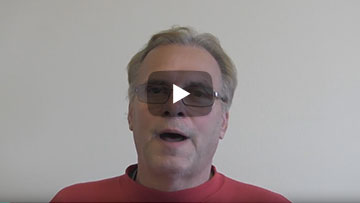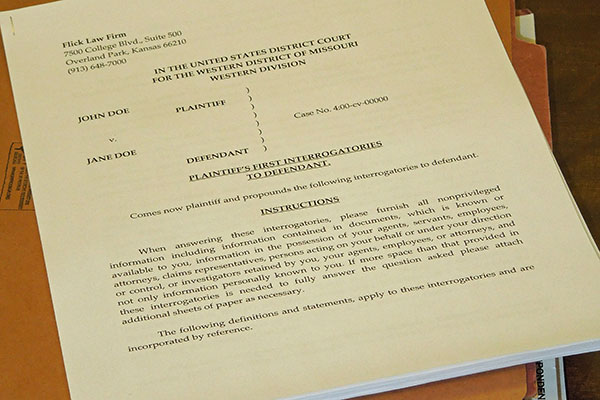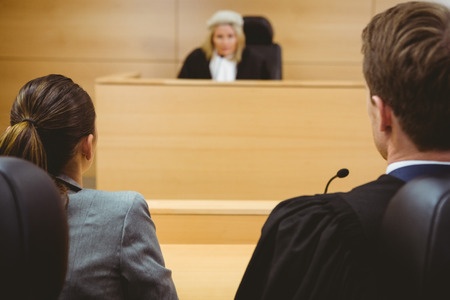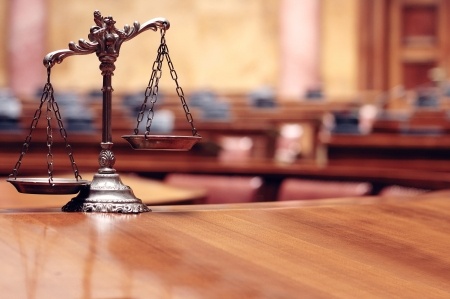![]() By Lawrence Flick
By Lawrence Flick
After your truck crash suit has been filed, procedures in most courts let the lawyers ask for information from the other side and outside parties which may be used as evidence in the case. This process is called “discovery” and can help your 18 wheeler accident lawyer properly prepare your case. It can also help us and the lawyer for the trucking company and its’ driver evaluate the strengths and weaknesses of their case and can provide important information for settlement negotiations.
Discovery procedures provide tools like:
- Interrogatories
- Requests for Production
- Depositions
- Physical and Other Examinations and
- Business record subpoenas.
These are described below.
Interrogatories
Interrogatories are written questions to be answered under oath within a specified time (usually 30 days). Court rules limit the number of interrogatories in many jurisdictions For example, the Federal Rules of Civil Procedure generally allow only 25 interrogatories. State court rules vary.
As your Kansas City truck accident attorney we have the right to send interrogatories about your truck accident to the trucking company and driver’s lawyer. Some things we might ask about are information the hiring and employment of the driver who caused your crash, technology that the truck involved in your crash was equipped with, other crashes the company’s trucks were involved in, potential witnesses, insurance coverage, investigations of the truck wreck and expert witnesses that the defense lawyers may have hired. This is some of what we often ask about in interrogatories.
Some typical Interrogatory questions that the trucking company’s attorney may ask request basic personal information like your name, date of birth, address and marital status. They will also probably ask about injuries you sustained in the truck crash, lost time from work, medical treatment for your injuries, medical expenses for this treatment, witnesses to the truck accident, the existence of scene videos or photographs, written or recorded witness statements and other documentation. This is just some of the subjects twe have seen defense attorneys ask in interrogatories. More information on interrogatories is in our Personal Injury Lawsuit Interrogatories page.
Requests for Production
These let lawyers request documents, computerized records, other electronic information and to inspect of things or places. The side being requested to provide the information usually has thirty days to produce it. At present, many courts do not limit the number of production requests that each side may send.
In a typical truck accident lawsuit some of the things we might ask for in requests for production are the truck driver’s employment and payroll records, driver logs, dashcam video, accident scene and crash damage photographs, witness statements, company manuals and truck insurance policies.
Some of the things that the trucking company’s lawyer might ask for are your medical records and bills for treatment of injuries sustained in the truck accident, photographs or videos of the scene of the truck accident, photos or videos of damage to the vehicles involved and information about witness statements.
The defense lawyers for the truck insurance company may also ask you to sign authorizations to let them to obtain your medical records or other types of records.
Business Record Subpoenas
Interrogatories, requests for production and admissions are usually sent from one party involved in a lawsuit to another. Other organizations, businesses or people not directly involved in your truck accident lawsuit often have documents or other information which may contain information about issues in your case. One example is the truck driver’s previous and subsequent employment records. These may show, for example, that the truck driver had a record of crashes and safety violations while driving trucks for a previous employer.
A special form of court order, often called a business records subpoena can be used to obtain these records.. Basically, a business records subpoena is served on the company, organization, or person possessing the documents needed, ordering them to produce the documents at a specified location by a certain time.
When a party to the case serves a business records subpoena, they are usually required to let the other parties in the case know. The organization or person on whom the subpoena is served and the other parties in the case usually have time to object. Generally, if they don’t object within the time frame specified, they will be expected to produce the items requested.
Business record subpoenas can be powerful tools to obtain documents and other information which may be very difficult to get otherwise.
Depositions
Depositions are one of the most powerful discovery tools. In a deposition your truck accident lawyer can question, interrogate and challenge the truck driver, the trucking company and its representatives, their expert witnesses and others. Rather than simply getting written interrogatory answers, which are usually prepared or reviewed by lawyers for the other side, a deposition lets lawyers have face-to-face real-time question-and-answer session with the witness. This lets the lawyer find out what the witness’s story is, get them committed to one specific version of it, evaluate the witness’s credibility and how they might be seen by a jury at trial,
In a deposition a witness (sometimes called the deponent) is asked or subpoenaed to appear at a specific time and testify under oath. Traditionally, most depositions were done with witnesses testifying live, in person. Depositions are often held at the office of one of the lawyers involved in the case. They may also be held other places like the witness’s place of business or a courthouse. During the Covid pandemic many depositions were done remotely by Zoom. Depositions continue to be done by Zoom especially for out-of-town witnesses due to the time and cost savings of not having to travel to distant places to take the deposition of a witness.
A number of people will usually participate in the deposition. The witness being questioned and a court reporter will almost always be present. The court reporter records the questions asked, answers provided and objections or other dialogue. After the deposition is over the court reporter will prepare a written deposition transcript In addition to the court reporter, many depositions are recorded on video. At Flick Truck Accident Law, we typically video the depositions of the truck driver, trucking company, its representatives and in some cases other witnesses. So there will also usually be a videographer present. Depending on the number of parties and lawyers involved in your truck accident lawsuit, there will usually be two or more attorneys present at the deposition.
The truck driver responsible for your truck crash is one of the first witnesses we will usually take the deposition of. Some of the things we usually ask them about are basic information like their name, address, educational and employment history, employment with the trucking company, events which happened before the crash, their version of how the truck accident happened, events after the crash. There is a lot more but we know that insurance companies and their lawyers look at our website. So, as a potential client, you probably don’t want us putting our whole playbook on the internet for them to study.
The trucking company’s lawyer will probably want to take your deposition. Some of the areas defense lawyers often ask about are basic background information like your name, whether you are married, if you have children, present and past employment, education, present and past residences. They will usually want a detailed description of your version of how the truck accident happened. They will also typically want to ask in detail about your injuries, medical treatment, lost time from work/income an ongoing medical problems which you attribute to injuries sustained in your truck wreck. This is just a sample of the questions we have seen defense lawyers ask truck accident victims in depositions.
Treating doctors are another witness whose deposition is frequently taken in truck crash cases. Some areas your treating doctor(s) may be asked about include your injuries, whether they were caused by your truck accident, the treatment you received, your diagnosis, any permanent disability and how it limits your ability to work and needs for ongoing medical care. Typically, your doctor’s deposition will be recorded by video in addition to the court reporter’s transcript. The video is frequently used during truck accident trials instead of live testimony by the doctor.
Physical and Other Examinations
In a truck accident case the nature and extent of your injuries and whether they were caused by your truck accident or a pre-existing condition are key issues. Also important are whether the medical treatment that you have had was necessary to treat your injuries, the extent of any permanent or future disability and your need for additional future medical care.
Your treating doctor and other health care providers most likely have information, evidence and opinions which relate to these issues. In part to allow the insurance company and/or their lawyers to obtain a medical opinion on these important issues, discovery procedures provide for physical and in some cases other types of examinations by doctors and other professionals that they select. These examinations are referred to by a variety of names like defense medical exam (DME) or independent medical examinations (IME)Typically, the defense lawyer or insurance company requesting the examination selects the doctor or other professional who will perform the exam and pays the costs of the examination. Physicians and others performing these examinations/evaluations run the gamut. Some are highly respected, well credentialed professionals who provide a fair and objective evaluation.
In one case handled by Flick Truck Accident Law, the defense lawyers requested an exam by such a doctor. He wrote a very fair report, basically verifying our client’s claims which was very helpful to us in the case. And we certainly weren’t upset that the insurance company, which had not been easy to deal with, paid for it.
Unfortunately, in some cases, insurance companies and/or their lawyers have been known to select doctors or other professionals whose evaluations and reports, rather than being objective and middle-of-the-road, have a track record of tending to support the position that the insurance company is taking.
Through a series of educational programs at the University of Kansas Medical School, Lawrence Flick acquired medical knowledge needed to develop techniques to attack and discredit these kinds of biased medical opinions. We also have other ways to try to prevent these types of opinions and reports becoming part of the evidence in your case.
Discovery Objections and Disputes
Discovery is not an open license to what go on what is sometimes referred to as a “fishing expedition”, hoping that by asking for enough information that sooner or later something useful will be found. Rather, court rules and decisions limit what can be asked for and the way it is requested..
When the lawyers for one side in a case send the lawyers for another party discovery like the interrogatories or requests for production, the party receiving the discovery requests may provide the information or documents asked for or may object to providing some or all of the information sought. Often, the lawyer for the party who does not want to provide the information will object. Some common objections are that the information asked for is irrelevant, that the request is overly broad or not proportional to the needs of the case or the information sought is protected by attorney-client or work product privileges. In most cases the attorney making these objections is required to show why request is improper and not just make boilerplate objections with no substantiation.
When the lawyer who used discovery to request the information receives the objections he or she will typically review them and may contact the attorney making the objections. Court rules often require that lawyers “meet and confer” to try to resolve discovery objections before taking the dispute to the judge. If this process is successful the lawyers may work out an agreement to provide all or part of the information requested.
If the lawyers cannot agree about what information should be provided or is properly objected to a “discovery dispute.” exists. In that case, the lawyers may request that the judge in front of whom the case is pending to resolve the dispute. A telephone conference between the lawyers involved and the judge is one way that these discovery disputes can be resolved. In other cases a lawyer for the party requesting the information may file a” motion to compel”. This is basically a formal request that the judge order the objecting party to provide the documents or information sought.
If the judge decides that the information or items sought exceed the limits of what is permitted, the judge may sustain the objection and rule that the information does not need to be provided. If the judge thinks that the requests are proper, he or she will typically overrule the objection and order that the information or documents be provided.
Disclosures
In addition for the discovery tools described above, the Federal Rules of Civil Procedure (which apply to civil cases in federal court) require a series of initial, supplemental and expert disclosures. Procedure in state courts varies. Some have adopted these requirements to varying degrees.
Initial Disclosures
Initial disclosures are intended to quickly and efficiently get certain basic case information on the table early in the case without the time, expense and delay involved with using discovery tools like interrogatories and depositions. Under the Federal Rules of Civil Procedure each side is required to disclose information about people with information about the case that might be used to support claims or defenses, documents that they might use in the case, a damage calculation and copies of insurance policies. Examples of the kinds of information or documents that might be provided as a part of initial disclosures in a truck accident case in federal court, a list of witnesses that the the trucking company might use to defend the case, their contact information, the subjects that witness has information about and a copy of the truck company’s insurance policy.
Supplemental Disclosures
The Federal Rules of Civil Procedure also require “supplemental disclosures”. Basically, this is to update or add to information which was required to be disclosed in the initial disclosures, but changed or was obtained after the initial disclosures were sent.
Expert Disclosures
Like initial disclosures, expert disclosures are intended to get certain basic information about expert witnesses out quickly without the need for using other discovery tools. Under the Federal Rules of Civil Procedure, expert disclosures are required to include the opinions the expert intends to provide, the reasons for them, the data or facts the witness considered in coming to their opinions and exhibits that will be used to support or summarize the opinions. They are also required to provide information about their qualifications, publications, prior testimony and how much they are being paid. State court expert disclosure requirements vary and may be similar or different from these.







